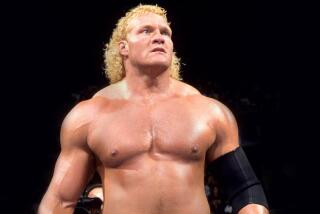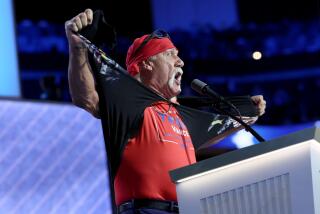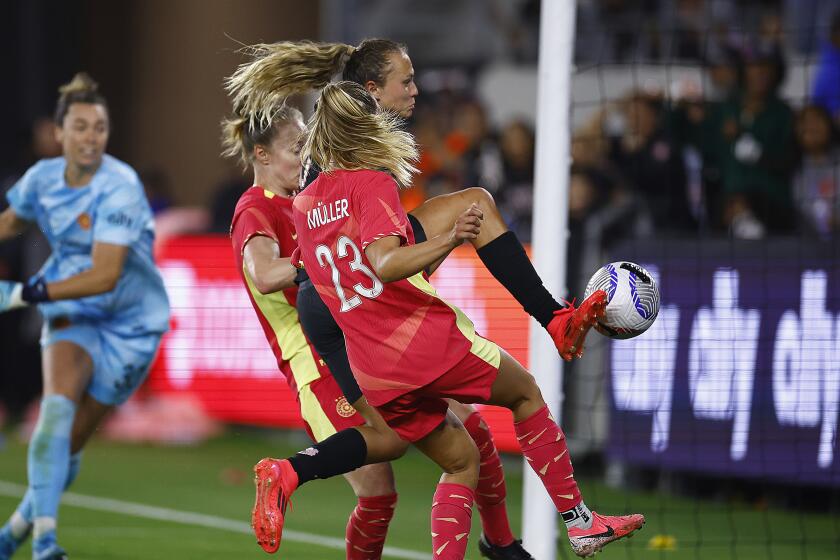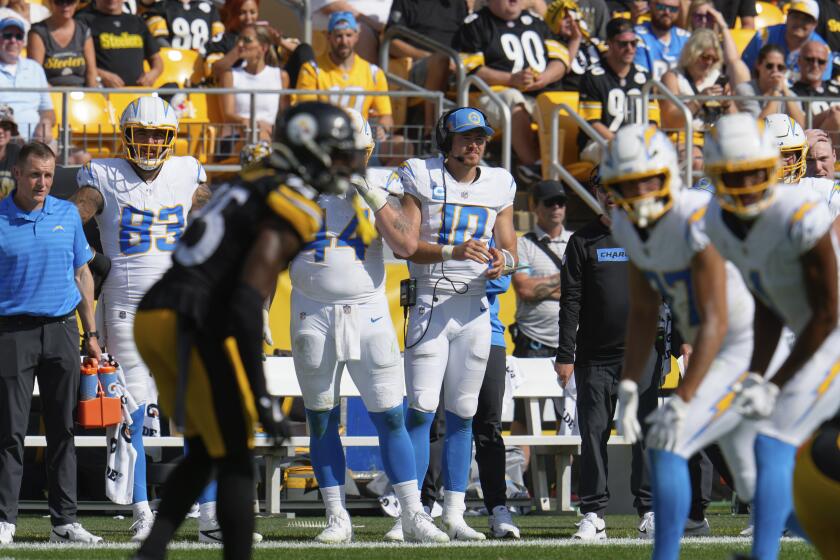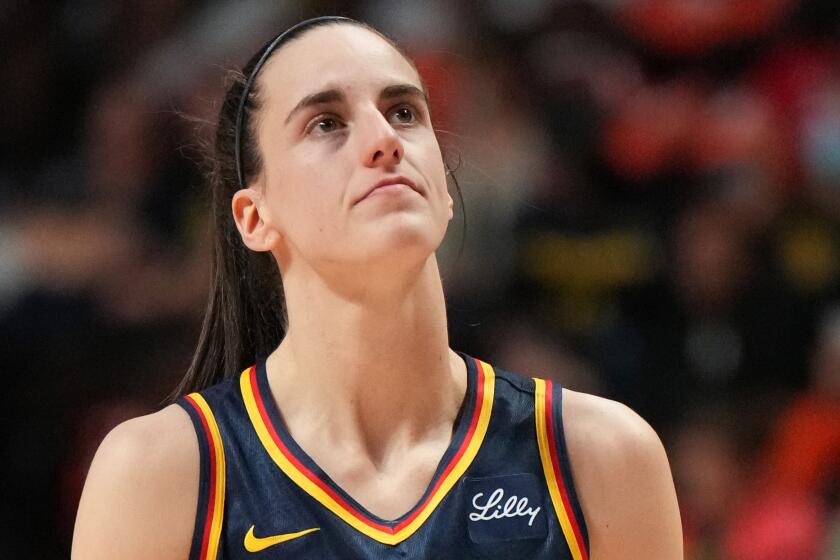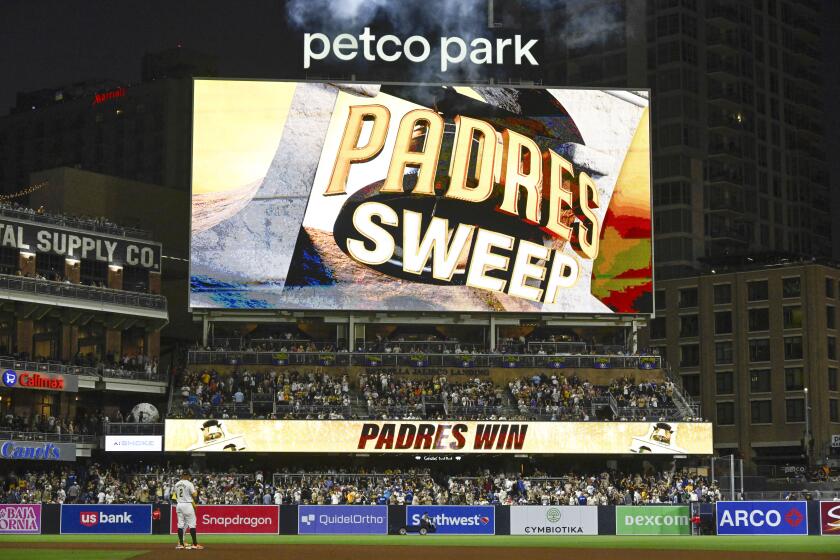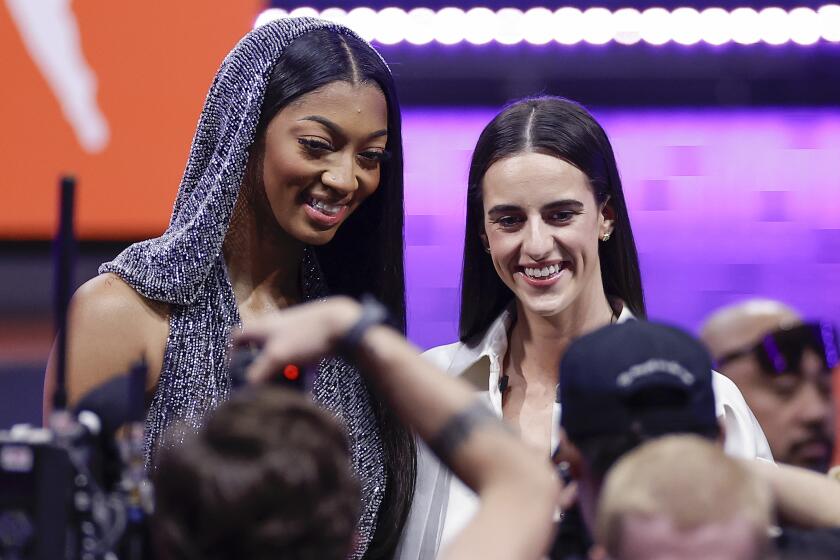Column: WrestleMania stands apart from other scripted forms of entertainment
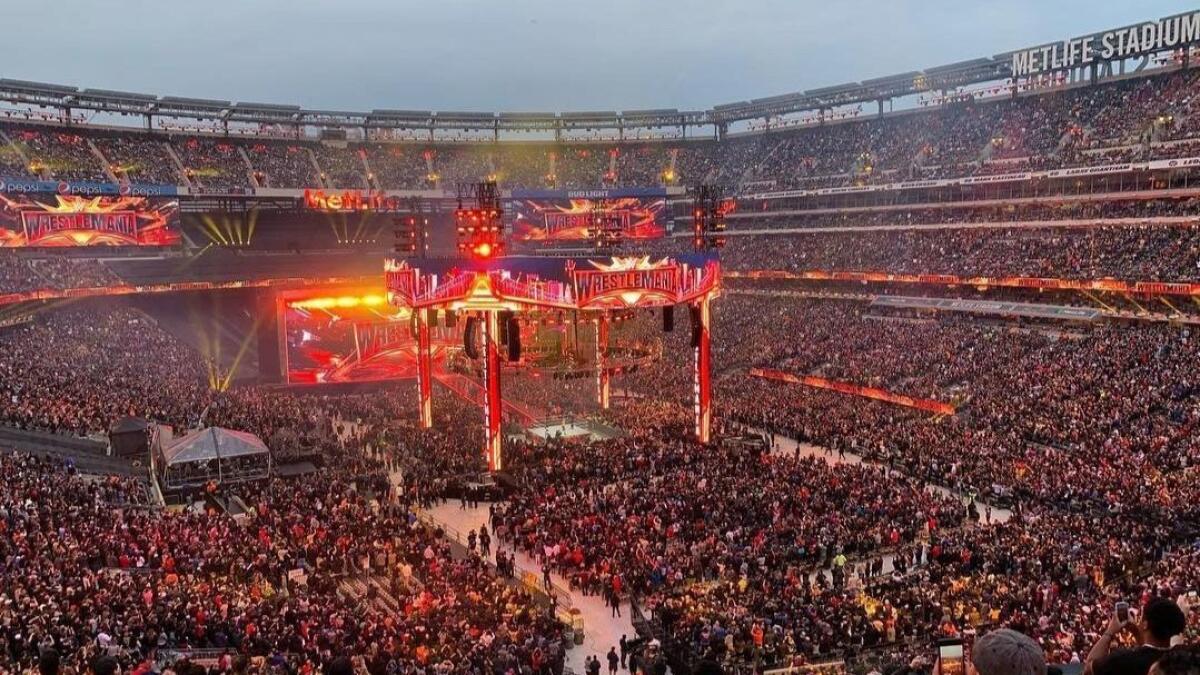
When you think of the biggest sporting events it’s not unusual to leave out WrestleMania, which attracted a sold out crowd of more than 80,000 at MetLife Stadium on Sunday.
The WWE, after all, is scripted drama, or “sports entertainment” as they like to call it.
For the record:
5:34 p.m. Aug. 14, 2020The original version of this article included material originally reported elsewhere, including the Minnesota Sports Facilities Authority spending on updating its facility. Attribution has been added.
WrestleMania has been one of my favorite events of the year since I was a kid watching Hulk Hogan, Andre the Giant and Macho Man Randy Savage on Saturday and Sunday afternoons. It’s one of the few joys of childhood that stuck with me as an adult.
I know, I know. I can already hear the condescending reactions from some of you saying it’s fake. I get it. The WWE acknowledged the outcomes of their matches were predetermined 30 years ago in order to deregulate pro wrestling.
Calling into question the legitimacy of WWE is as ridiculous as saying “Game of Thrones” isn’t real. Everyone watching both shows just wants to be entertained and talk about the story lines and characters.
Live events like WrestleMania are what make the WWE different from other scripted entertainment. It was hard not to feel like you were at a major sports event walking around the crowded concourses of MetLife Stadium, home of the New York Giants and Jets. The lines between reality and fiction are occasionally and intentionally blurred at times. For example, WrestleMania began with former UFC champion Brock Lesnar losing his WWE universal championship and ended with former UFC champion Ronda Rousey losing her WWE women’s championship.
Lesnar and Rousey are two of the biggest stars in UFC history and have seamlessly transitioned into two of the biggest stars in the WWE by playing amplified versions of themselves. UFC’s biggest star, Conor McGregor, recently retired and is now flirting with the idea of joining the WWE as well.
WrestleMania is regularly ranked near the top of Forbes’ “Fab 40” list of the world’s most valuable sports brands, behind the Super Bowl, Olympics, World Cup and Final Four.
Next year’s WrestleMania at Raymond James Stadium, home of the Tampa Bay Buccaneers, will be the 14th consecutive WrestleMania held at a football stadium that holds at least 70,000 fans. All but one of those venues also hosted a Super Bowl.
WrestleMania and the Final Four are usually held the same week, in stadiums typically used for football, and have drawn similar crowds with similar economic impacts. The WWE and Louisiana Gov. John Bel Edwards announced last year’s WrestleMania generated $175 million in economic impact for the greater New Orleans region. This year’s Final Four in Minneapolis is expected to generate $142 million, according to the event’s local organizing committee.
Los Angeles held two of the first seven WrestleManias at the Sports Arena but has not hosted one since WrestleMania 21 in 2005 at Staples Center. That will likely change in 2021. The football stadium under construction in Inglewood, which will open in 2020 as the home of the Rams and Chargers, is the front-runner to host WrestleMania 37, according to multiple sources. City and stadium officials would like to use hosting it as a test run for Super Bowl LVI in 2022.
“We know the power of the WWE brand,” said Kathy Schloessman, president of the Los Angeles Sports and Entertainment Commission. “They have hosted several events here in the past such as Summer Slam, Survivor Series, Raw and SmackDown and we have seen the tremendous impact these events have in the community, both economically and socially. Given our focus on attracting major sporting and entertainment events to Los Angeles, WrestleMania is at the top of our list of events we want here.”
::
One event that won’t be coming to Los Angeles anytime soon is the Final Four. The last time the Final Four was held in Los Angeles was 1972 and the last time it was held in California was 1975. With the Final Four held in covered football stadiums, California has been on the outside looking in.
The Inglewood stadium, which will be covered, was seen as a possible site, but the selection committee had concerns about the stadium’s clear roof and it was not chosen when they picked sites through 2026. The roof is similar to the one at U.S. Bank Stadium in Minneapolis, which hosted this year’s Final Four. The Minnesota Sports Facilities Authority spent $4.6 million in fabric to keep the sunlight glare off the floor, according to the organization. Los Angeles is proposing to do the same when it bids to host the Final Four in 2029.
::
As much as Dodgers fans would have liked to see Bryce Harper in L.A. this season, it’s hard to argue with the team’s stance on not overpaying for another bat. The Dodgers have scored 84 runs in their first 10 games, and as good as Harper is, he’s not the missing piece this team is looking for.
::
Ralph Lawler will call his final regular-season game for the Clippers on Wednesday at Staples Center, and it’s still hard to believe someone else will be behind the microphone for the team next season for the first time in 40 years. I know the Clippers are planning to move to a new arena in 2024, but there’s no need to wait that long to properly honor Lawler at Staples Center with a banner. It would be the Clippers’ first banner in the arena but the third honoring a broadcaster. The Lakers hung one for Chick Hearn and the Kings raised one for Bob Miller.
More to Read
Go beyond the scoreboard
Get the latest on L.A.'s teams in the daily Sports Report newsletter.
You may occasionally receive promotional content from the Los Angeles Times.

